SLHS: Arrival Of Railways




Disclaimer
Whilst some care has been taken to check externally linked websites no responsibility is offered nor implied for the suitability, legality or reliability of content therein.
Statements are made here to the best of our knowledge. However no statement here should be regarded as irrefutable fact. Please contact us if you consider otherwise.
The Stratford-on-Avon Railway Branch Line
In 1852 the mixed, broad gauge and standard gauge, double track Birmingham & Oxford Junction Railway was completed between those two cities. This was worked by Brunel’s GWR engines. In 1854 they completed The Stratford-on-Avon Railway from Hatton, via Bearley, to Espley’s Brickworks which was also double track and mixed gauge.
The Stratford (East) Branch Line
In 1854 Oxford, Worcester & Wolverhampton Railway constructed their main line between those cities to the South-East of Stratford but only to standard gauge (since the Railway Regulation (Gauge) Act of 1846).
In 1859 they completed a new single track line from Honeybourne, via Long Marston, to service Lucy’s Mill and a new Sanctus Street passenger station.
Competition: New Passenger Terminus Of The Stratford-upon-Avon Railway
The GWR seeing the OWWR being built laid on passenger services to a wooden built station on the Birmingham Road (visible by the letter “H” in the word “Birmingham” right). It became a very successful railway (see SAR wiki).
New Brewery Railway Yards
Obviously Flowers Brewery had discussed the location of their forthcoming new brewery (with the old one remaining at the bottom of Clopton Road) so some complex sidings were added for that and it was built. Efficiently, no doubt most of the construction materials came this way.
Further Information..
-
The hugest repository of local railway information: Warwickshire Railways
SLHS Picture & Document Archives..
-
Picture Vaults: Coming soon..
Last update: 31/10/2024
● These items have aspects that uniquely contribute to national or world history.
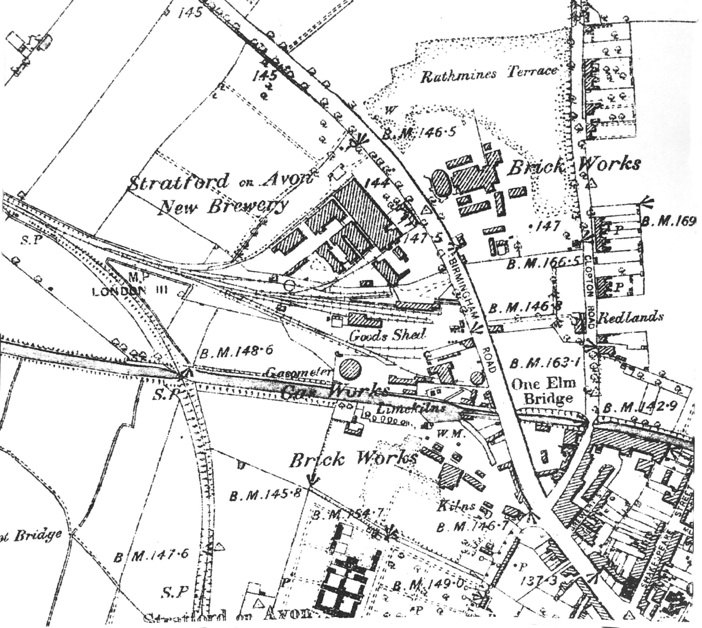
New Link Railway
In July 1861, the GWR wanting to bring minerals through from South Wales so the OWWR agreed that the SAR be extended south to the over the canal (which must have sensed calamity by now) and a new ‘joint station’ (the present one) was constructed half way along. Being nearer to the town was quite advantageous. However, much to Brunel’s chagrin, this link was only built to 4’8½ gauge and was one of the first important lines to short circuit Brunel’s plan to have a National Broadgauge System.
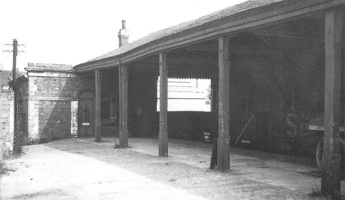
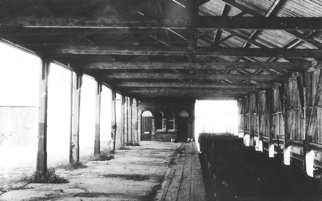
Brewery Depot (photo 1966 when out of use)
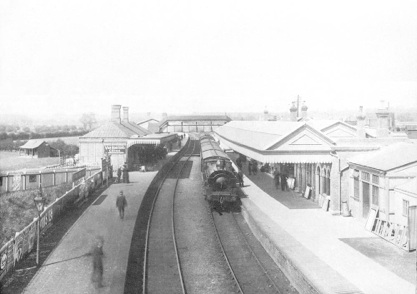
Hotel Railmotor Service
With a keen eye on high class passengers the LMS introduced railmotor vehicles to take rail passengers direct to the Welcombe Hotel without them having to get out !
Stratford GWR Station Looking North-East from Alcester Road Bridge 1908
Note: Green fields to left before extra track added.
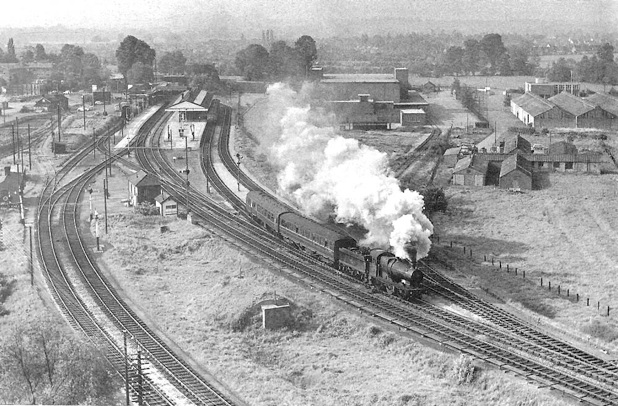
GWR Station Looking West 1964
Huge Through Traffic
Stratford became so important that first one then two extra tracks had to be added to the north of the station (right of picture below).
Then a siding was added for access to the Ministry Of Food Cold Store (upper centre of picture below).
Stratford GWR Station with broad gauge locomotive
● First important railway to NOT install Brunel’s broad gauge

Links For Industry
At all stages railways needed financial diversity and so connectivity to the brickworks, brewery and the ever expanding mill on the river proved profitable. The considerable network of marshaling yards and locomotive maintenance sheds grew.
Cattle Transport
Not only was Stratford a centre for offloading coal, timber and the raw materials for millings and the finished products but the nearby cattle market required the servicing of livestock.
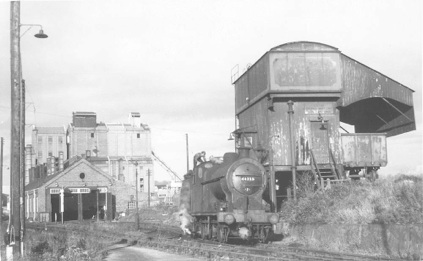
LMS locomotive coaling stage 1960

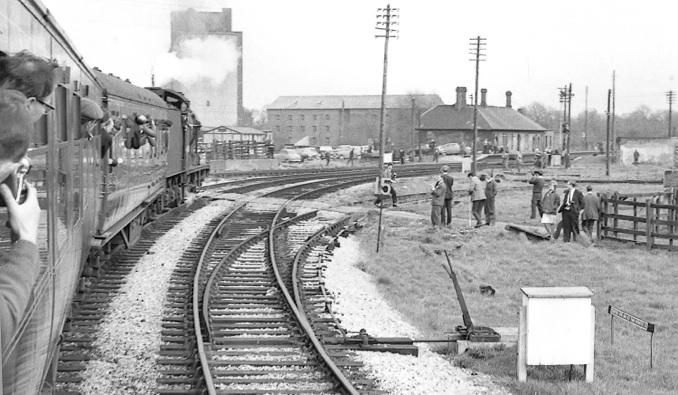
A through train from GWR to LMS Note Lucy’s Mill to left
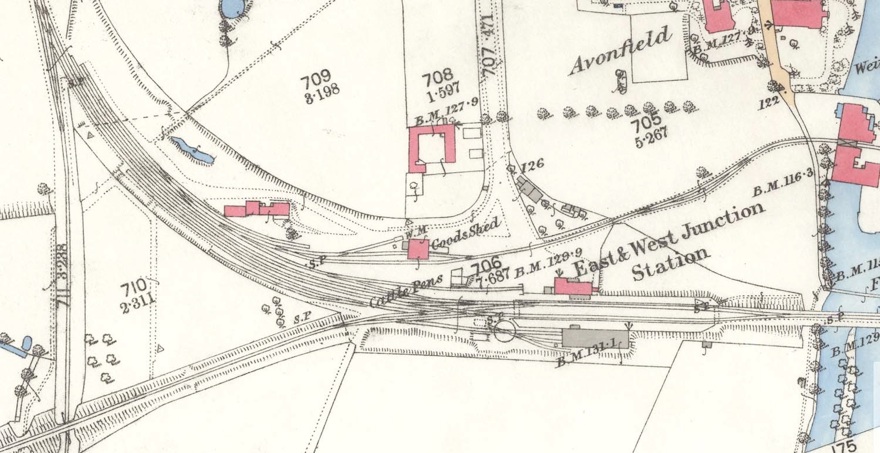
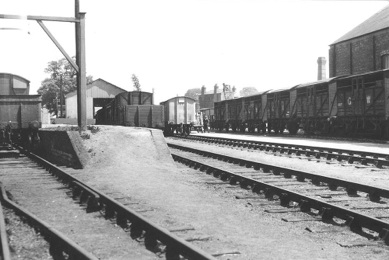
Birmingham Road sidings near Gas Works. Note cement truck centre.

To return to Master page click on ‘Railways’ above.
-
● Full
-
● Partial
-
● None
-
Theatres ●
